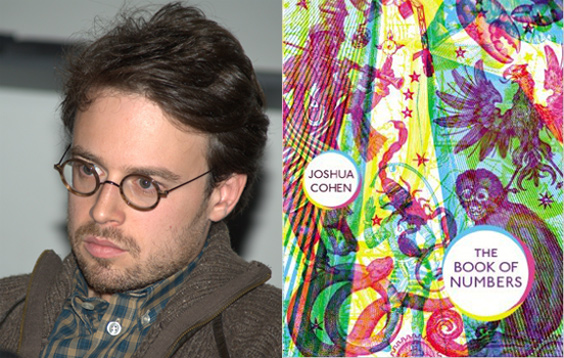
Joshua Cohen has all the trappings of an arch-nemesis: he’s handsome, precocious, hyper-functional, prolific. He speaks three languages. Besides his latest novel, Book of Numbers, he’s written three others, plus four collections of stories. He’s thirty-four years old, and, according to a 2010 profile in the Observer, he’s a self-styled literary outcast, claiming, “The M.F.A. is a degree in servitude.”
But read the recent influx of press on novelist Joshua Cohen, and a different image comes into focus: a tireless savant, laboring in obscurity. Cohen spent the better part of nine years on an 800-something page novel called Witz: it’s an electrified, satirical opus, the hero of which is the last Jew on earth; not many people have read it. Cohen’s latest novel, a touch shorter, has enjoyed significantly more renown; Dwight Garner says, “[Cohen’s] magic is serious.”
Like several of his contemporaries (Lerner, Knausgaard), Cohen embraces the autobiographical: in Book of Numbers, Cohen’s protagonist, an overlooked writer named Joshua Cohen, has been tasked to ghostwrite the biography of a tech kingpin (also, incidentally, named Joshua Cohen). If that sounds convoluted, it’s because it is. Ultimately, though, Cohen’s novel is a success: it revels in chaos, and in fast, heady prose.
(Author photo by David Shankman, Wikimedia)
JTA has documented Jewish history in real-time for over a century. Keep our journalism strong by joining us in supporting independent, award-winning reporting.





